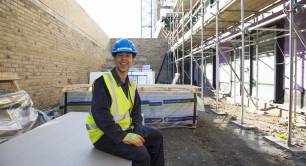How has Big Society Capital spent its money?
Big Society Capital (BSC) has released information on nearly £500m worth of social investment that has flowed into the hands of charities and social enterprises over more than a decade.
The data covers all of the investments that BSC has made since its launch in 2012 but also includes some information from other investors such as the Esmée Fairbairn Foundation and CAF Venturesome. Some deals from trusts have been included in the data that date back to 2005.
The list contains investments worth a total of £488m. Charities received the lion’s share of the money, with 60% going to this type of organisation. Social enterprises were less well represented, having received 16% of the investments. All of the data can be found here.
With reference to its recent report on the size of the market, BSC estimates this amount to be about a third of the total amount of social investment capital that is currently committed.
Commenting on the release of the figures, Daniel Brewer, managing director of social investors Resonance, said: "It is great to see that there is a willingness to share this kind of data across the sector and encouraging to see the volume of transactions increasing.
"There are several of us intermediaries who have arranged over £100m into the hands of social enterprises cumulatively over our existence – a worthy club to be part of and much more meaningful than the simpler ‘Assets Under Management’ that the finance world is used to boasting about."
Big Society Capital was launched with £600m to invest. It loans this money to social investment finance intermediaries who then make their own investments. Of the 708 investments listed, 72% were loans but it's noteworthy that social impact bonds accounted for 8% of the money allocated.
Aside from the £56.8m that went into the Real Lettings Property Fund, the most notable amount in the spreadsheet is the £29m that BSC loaned to Cheyne Capital for their Social Property Fund. No information was forthcoming from either BSC or Cheyne about what this money was used for, although it is listed in a category citing the target beneficiary as 'homeless'. BSC have confirmed previously that they have put £12m into the Cheyne Social Property Impact Fund.
Cheyne Capital is an alternative investment manager that works with social sector organisations delivering housing services in the UK. A recent example is Luton borough council. Cheyne purchased a brownfield site from the council upon which 80 affordable rented homes have now been built. Cheyne then leases the homes back to the council who rent them out at below average market rates. The Social Property Fund is expected to mature in 2019 and is reportedly targeting levered returns of 10-12%.
For the first time, BSC have also published some information about the social impact created through the social investment. More than 540 metrics were captured and positive outcomes include improvements in health, the building of accommodation for vulnerable adults and the creation of both apprenticeships and jobs.
Photo credit: James Cridland



